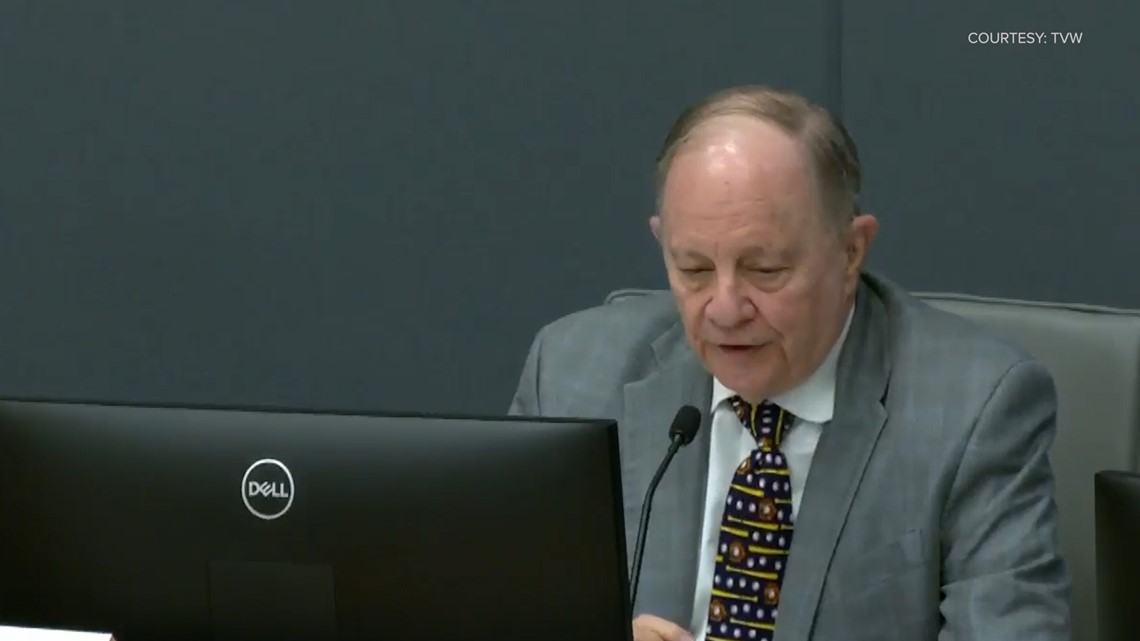OLYMPIA, Wash — As a result of a KING 5 investigation, a Washington senator is working to change state law to lodge harsher penalties against corrections officers who commit sex crimes.
Sen. Mike Padden (R-Spokane Valley) said he’ll sponsor a bill in January, when the Washington State Legislature reconvenes, that would bump up the crime of first-degree custodial sexual misconduct from a class C to a class B felony.
The legislation would lead to additional prison time for jail and prison guards who sexually assault inmates or engage in other sexual misconduct in the course of their jobs, he said.
Padden said he drafted the bill in response to KING 5’s reporting, which revealed how a decades-old decision by Washington lawmakers allowed a sexual predator working as a jail guard in Forks to receive a light prison sentence for his crime against multiple inmates.
"After looking at everything, I’ve come to the conclusion that people should be held more accountable,” said Padden, the ranking member of the Senate Law and Justice Committee. “This should be treated more seriously.”


John Gray, the former Washington corrections officer at the center of the multi-part KING 5 series, sexually assaulted four women who were inmates at the Forks jail in 2019. After he pleaded guilty to two misdemeanor and two felony counts of custodial sexual misconduct, a Clallam County judge sentenced him last year to 20-months in prison. He was released early – in March of this year – after carrying out 13 months of his sentence.


“It seems like he got off fairly easy,” Padden said.
The length of Gray’s prison sentence was driven by a decades-old decision by the Washington State Legislature to set lighter penalties for sexual assault cases involving corrections officers compared with penalties for the most serious rape cases involving civilian offenders.
In Washington, sentences for adult felony crimes are determined by a system that takes into account the “seriousness level” of the offense and the criminal record of the offender. Judges score defendants by looking at their history – assigning higher scores to offenders with prior convictions. Then, they consult a grid of sentencing ranges that are calculated based on those two factors.
When the Legislature unanimously voted in 1999 to pass the bill creating “custodial sexual misconduct,” they made the crime a Class C felony and assigned it a seriousness level of five – the same level as the crime of rape in the third degree but six levels lower than the seriousness level they assigned to second-degree rape.
For first time offenders, one count of second degree rape could result in six-and-a-half to eight-and-a-half behind bars – compared with a six-to-12 month sentence for one count of felony custodial sexual misconduct.
Padden said his bill, as its drafted now, would increase the seriousness level of “custodial sexual misconduct” two levels higher than it currently stands.
Sen. Manka Dhingra (D-Redmond), chair of the Senate Law and Justice Committee, also vowed to take action. Dhingra, who’s running for reelection in November, said she will “revisit” Washington’s custodial sexual misconduct law with colleagues and stakeholders this year.
“Our understanding of consent, our understanding of power dynamics has all changed,” she said. “A lot of people really complain that our laws don’t keep up with society, and that is true.”
Dhingra said she plans to consider changes that account for the imbalance of power that exists in these types of cases.
“When someone is in a position of power, they need to be held to a higher standard,” she said. “This is why we need changes to our criminal code.”


